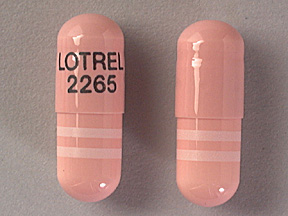
Lotrel Coupons & Savings Card – Discount Prices from $6.27
Brand for: Amlodipine-benazepril
My prescription
Edit
5-20MG, Amlodipine-benazepril (30 Capsules)
Select pharmacy

CVS
$20.05
COUPON PRICE
Walmart
$6.27
COUPON PRICE
Walgreens
$12.15
COUPON PRICE
Albertsons
$15.29
COUPON PRICELotrel savings card
Show this card to your pharmacist
Walmart
$6.27
BIN
ID
PCN
GRP
019876
LH91278075
CHIPPO
LHX
Powered by
Related ACE inhibitor / calcium channel blocker combinations prescriptions
More prescriptions for hypertension
Related ACE inhibitor / calcium channel blocker combinations prescriptions
More prescriptions for hypertension
Price history for Lotrel (brand) & Amlodipine-benazepril (generic)
30 Capsules, 5-20MG
Average retail price for Lotrel
Average retail price for Amlodipine-benazepril
Average SaveHealth price for Amlodipine-benazepril
Our price history data is based on aggregated prescription data collected from participating pharmacies in America. Our prescription data updates daily to reflect the latest price changes. If you notice a missing data point, it means there wasn't sufficient data available to generate a monetary value for that date.
Over the last 12 months, the average discount price of Lotrel is $19.60 using the SaveHealth savings card. That's an average savings of 96.63% on Lotrel with our discount card.
*Retail prices are based on pharmacy claims data, and may not be accurate when we don't have enough claims.
Lotrel (Amlodipine-benazepril) dosage forms
Dosage Quantity Price from Per unit 5-20MG 30 Capsules $6.27 $0.21 5-10MG 10 Capsules $3.63 $0.36 5-10MG 30 Capsules $5.89 $0.20 5-10MG 60 Capsules $9.28 $0.15 5-10MG 90 Capsules $19.17 $0.21 5-10MG 180 Capsules $32.44 $0.18 5-20MG 7 Capsules $3.38 $0.48 5-20MG 60 Capsules $10.05 $0.17 5-20MG 90 Capsules $20.32 $0.23 5-20MG 180 Capsules $34.61 $0.19
| Dosage | Quantity | Price from | Per unit |
|---|---|---|---|
| 5-20MG | 30 Capsules | $6.27 | $0.21 |
| 5-10MG | 10 Capsules | $3.63 | $0.36 |
| 5-10MG | 30 Capsules | $5.89 | $0.20 |
| 5-10MG | 60 Capsules | $9.28 | $0.15 |
| 5-10MG | 90 Capsules | $19.17 | $0.21 |
| 5-10MG | 180 Capsules | $32.44 | $0.18 |
| 5-20MG | 7 Capsules | $3.38 | $0.48 |
| 5-20MG | 60 Capsules | $10.05 | $0.17 |
| 5-20MG | 90 Capsules | $20.32 | $0.23 |
| 5-20MG | 180 Capsules | $34.61 | $0.19 |
| 10-20MG | 10 Capsules | $4.02 | $0.40 |
| 10-20MG | 30 Capsules | $7.06 | $0.23 |
| 10-20MG | 60 Capsules | $11.63 | $0.19 |
| 10-20MG | 90 Capsules | $22.69 | $0.25 |
| 10-20MG | 180 Capsules | $35.78 | $0.20 |
| 10-40MG | 7 Capsules | $3.49 | $0.50 |
| 10-40MG | 10 Capsules | $3.91 | $0.39 |
| 10-40MG | 30 Capsules | $6.74 | $0.23 |
| 10-40MG | 60 Capsules | $10.98 | $0.18 |
| 10-40MG | 90 Capsules | $21.72 | $0.24 |
Is Lotrel a good blood pressure medicine?
Lotrel is a combination medication that includes amlodipine, a calcium channel blocker, and benazepril, an ACE inhibitor. It is commonly prescribed to treat high blood pressure (hypertension). The effectiveness of Lotrel can vary depending on the individual's specific health needs and how they respond to the medication. It is important for patients to consult with their healthcare provider to determine if Lotrel is the right medication for their condition and to discuss any potential side effects or interactions with other medications they may be taking.
Is Lotrel a beta blocker or ACE inhibitor?
Lotrel is a combination medication that includes an ACE inhibitor, benazepril, and a calcium channel blocker, amlodipine. It is not a beta blocker.
Is Lotrel the same as amlodipine?
Lotrel is not the same as amlodipine, but it contains amlodipine as one of its components. Lotrel is a combination medication that includes amlodipine, a calcium channel blocker, and benazepril, an ACE inhibitor. It is used to treat high blood pressure.
What are the side effects of taking amlodipine benazepril?
Amlodipine benazepril may cause several side effects. Common side effects include dizziness, headache, cough, and swelling of the hands, feet, or ankles. Some individuals may experience fatigue, nausea, or flushing. Serious side effects, though less common, can include fainting, irregular heartbeat, severe abdominal pain, or signs of kidney problems such as a change in the amount of urine. Allergic reactions, though rare, may present as rash, itching, swelling, severe dizziness, or trouble breathing. It is important for individuals to contact their healthcare provider if they experience any severe or concerning symptoms.
Is amlodipine benazepril a good blood pressure medication?
Amlodipine benazepril is a combination medication used to treat high blood pressure. It combines two active ingredients: amlodipine, a calcium channel blocker, and benazepril, an ACE inhibitor. This combination can be effective in lowering blood pressure by relaxing blood vessels and reducing the workload on the heart. However, whether it is a suitable medication depends on the individual's specific health condition, medical history, and response to treatment. It is important for patients to consult with their healthcare provider to determine if this medication is appropriate for their needs.
